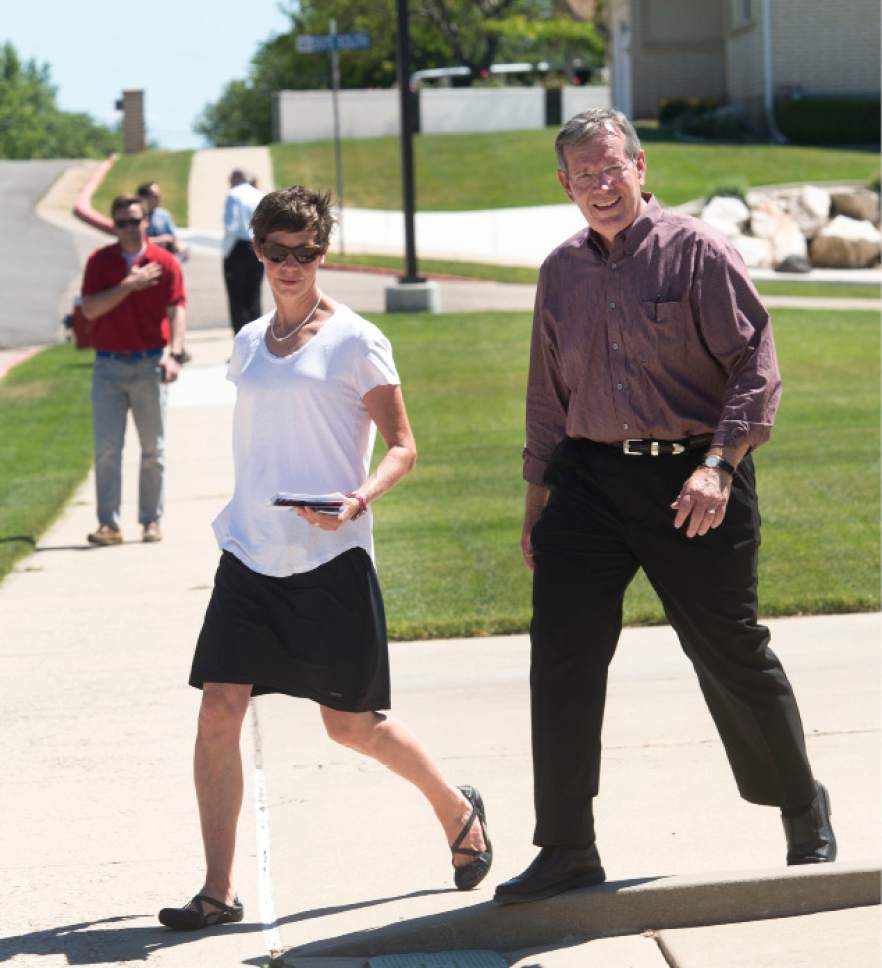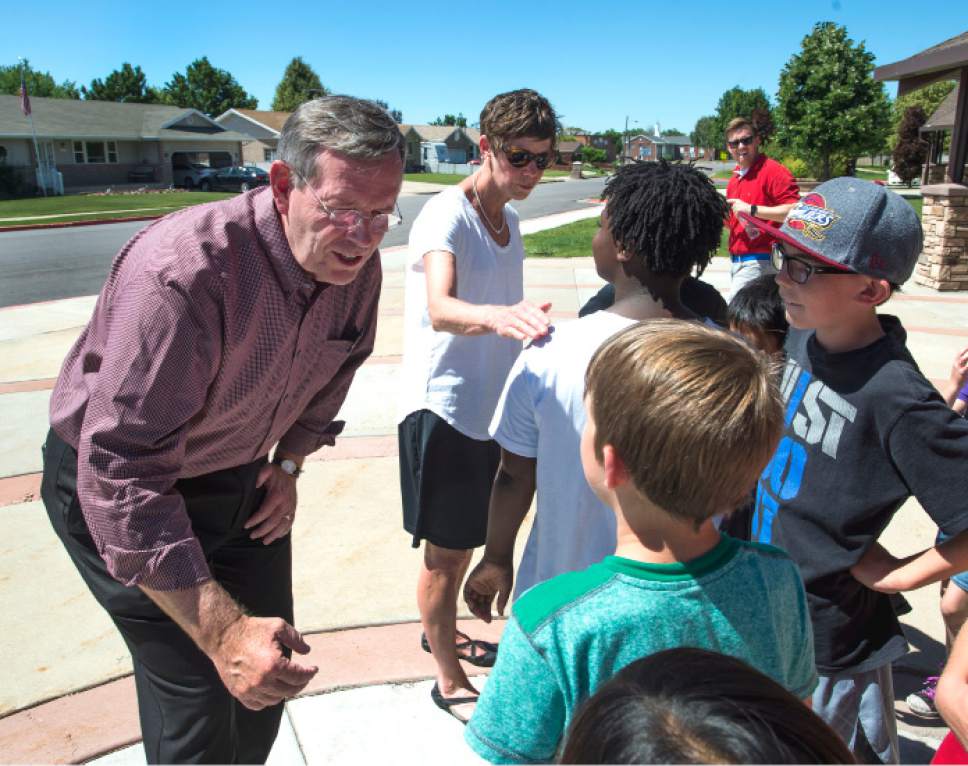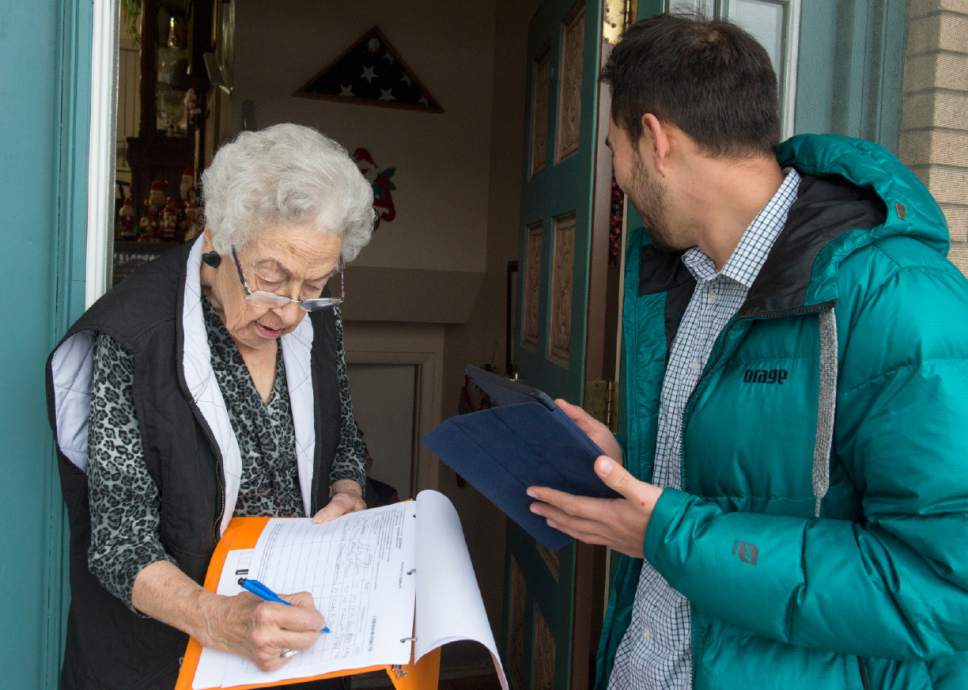This is an archived article that was published on sltrib.com in 2017, and information in the article may be outdated. It is provided only for personal research purposes and may not be reprinted.
An effort to make it significantly more difficult for Utah candidates to qualify for the primary election ballot by collecting signatures ran into a problem Thursday: The U.S. Supreme Court.
HB22 sought to outlaw paid signature gathering for candidates. Critics said such a ban would essentially kill off the new alternative path to the ballot outside the traditional caucus-convention system because of the high numbers of signatures required.
But legislative lawyers pointed out that the high court has ruled paid signature gathering is a protected form of free speech — so the bill was unconstitutional.
Its sponsor, Rep. Brian Greene, R-Pleasant Grove, sought during floor debate on Thursday to solve problems by restricting just some forms of paid signature gathering, and allowing others But others said it is still unconstitutional.
So Greene pulled the bill temporarily from floor consideration to try to work out problems.
The controversy has roots in SB54, which the Legislature passed in 2014 as a compromise to halt the Count My Vote initiative that sought to replace the traditional caucus-convention system with a direct primary.
SB54 was a hybrid that allowed candidates to qualify for the ballot either through the caucus-convention system, by collecting enough signatures, or both.
The Utah Republican Party fought the change unsuccessfully in court. It recently said it would stop appeals, and seek any needed tweaks through legislation.
In debate Thursday, several House members opposed HB22 as an attempt to weaken SB54.
"SB54 went through and it is law, and making it more cumbersome is not the thing we ought to do," said Rep. Val Potter, R-North Logan.
"I think we're just trying to pick away at it and make it more difficult than it needs to be," said Rep. Kelly Miles, R-Ogden. "If we have a problem with signature gathering, we ought to do away with that — and not try to pick away at it."
Rep. Jim Dunnigan, R-Taylorsville, said Greene's attempt to ban some forms of pay "is just silly." He added, "If you don't like the law [SB54], change the law. Don't make it more difficult for those of us who have to comply with it."
Statewide candidates must collect about 28,000 signatures to qualify for the ballot. State Senate candidates must collect 2,000, and House candidates must collect 1,000.
Originally, HB22 was an attempt to more tightly regulate signature gathering after a number of unsubstantiated allegations of shenanigans — including that they misrepresented for whom they were working. The bill includes fines for up to $100 per signature for those gathered illegally.
The bill also would require signature gatherers to wear hats, shirts or badges showing clearly for whom they are gathering signatures.
Greene was an opponent of SB54 and last year he was forced into a primary by a challenger who used the petition method to get on the ballot.







